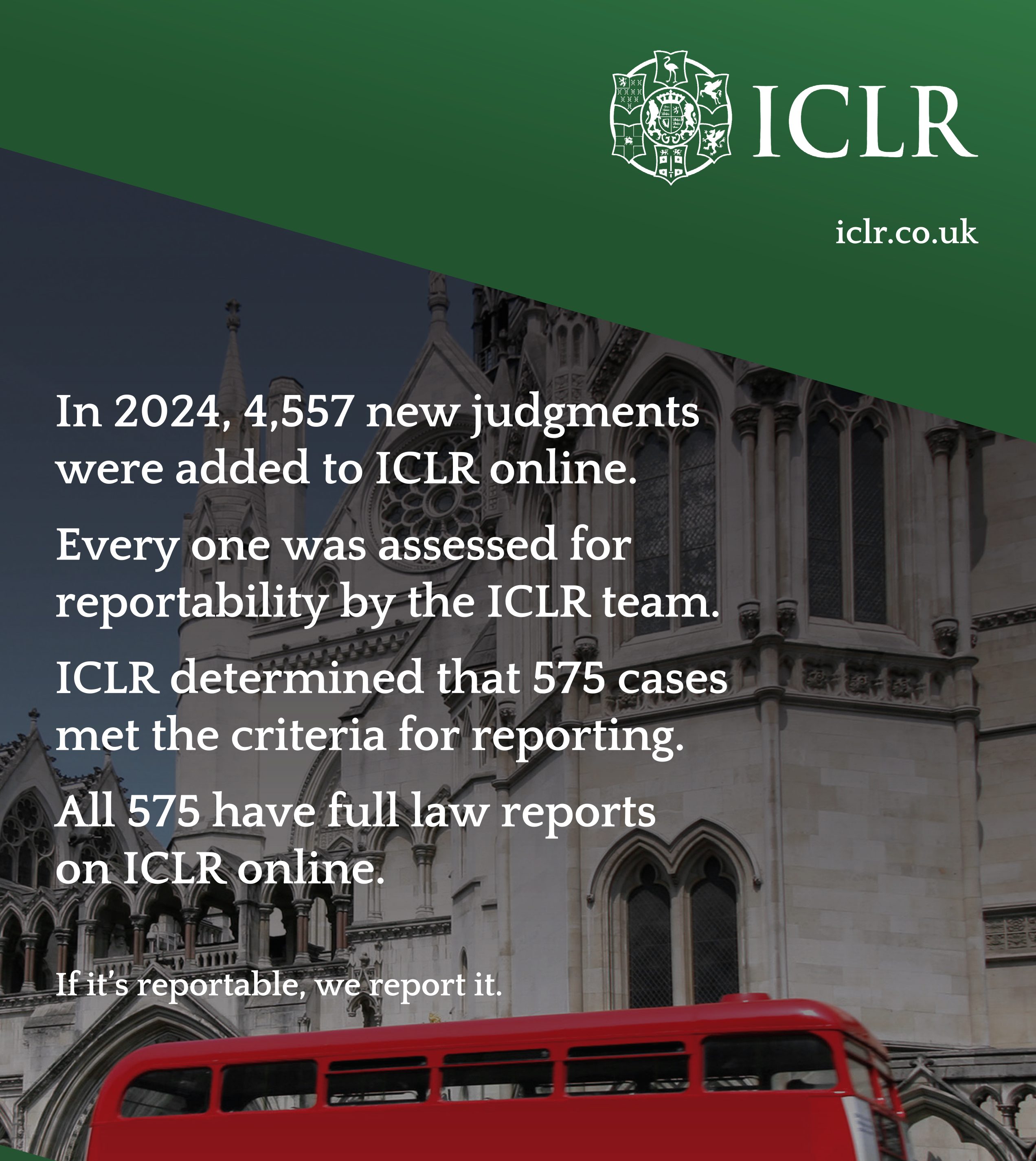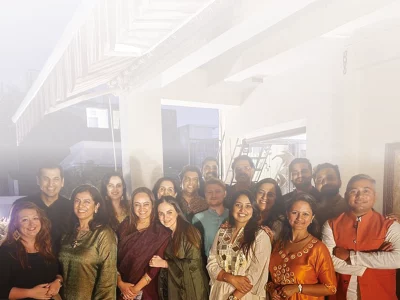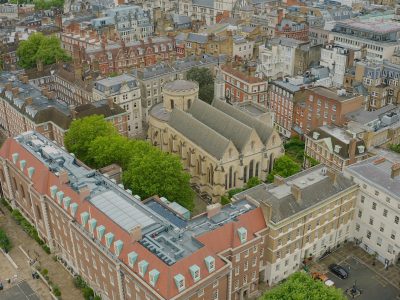
ICLR
If it's reportable, we report it.

By Toby Roseman
You hear vastly varying opinions of Delhi, but my experience was a positive one, and I count myself lucky to have spent two months there as a Pegasus Scholar in 2024. The people, the food and the culture in Delhi made for a truly unforgettable experience.
As a criminal practitioner, the Hingorani Foundation (the point of contact for Pegasus Scholars) went to great lengths to ensure that I was able to experience all levels of the criminal justice system in Delhi.
My first placement was with an eminent Senior Advocate (similar to our King’s Counsel) named Maninder Singh, who kindly took me under his wing for the first few weeks. I shadowed him in the High Court, where he primarily practises. I witnessed various serious matters, including murder, rape and terrorist offences. Most strikingly, the High Court judges each have between 100 and 200 cases in their lists each day. Therefore, each courtroom was crammed full of advocates, accompanied by colleagues and a clerk or two. The result of such busy lists meant that each case would only ever have a few minutes to be heard. As such, advocates would have to be quick, precise and to the point; with a small window to grab the judge’s attention, the punchier their submissions, the better. Not only was the experience in the courtrooms fascinating, but the High Court’s canteen boasts the best fare of any of the courts (as argued by the regulars of the High Court, but I wholeheartedly agree, having taken it upon myself to try the canteens at every other court I visited). As such, my time outside of the courtroom was usually spent talking to one of the many friendly, intriguing and engaging advocates that frequent the High Court, over an iced coffee, butter chicken curry, or a bun samosa (a truly wonderful invention consisting of a samosa in a burger bun).
My next placement took me around various District Courts with Akhand Pratap Singh and his office. A standout experience here was observing the cross-examination of an eyewitness in a murder trial. The witness only spoke Hindi, but the Court conducts its business in English. To manage this, the witness was seated in between the defence and prosecution advocates on one side of the courtroom. The defence would ask his question in English, which would be noted by the stenographer. He would then repeat the question in Hindi, the witness would answer in Hindi, and then both advocates along with the judge would agree on an English translation for the stenographer. Meanwhile, the judge was presiding over other matters: an application being made in the middle of the courtroom, and new hearing dates being given on the far side. It was an awe-inspiring exercise in multitasking.
Next, I was in the Supreme Court with Vikramjit Banerjee and his colleagues. One of the most fascinating cases here was in the Supreme Court, when watching the submissions of the Appellant in a case concerning changing the law to criminalise a husband raping his wife. This seemed like a momentous moment in the progression of women’s rights in India, and the standard of advocacy involved was inspiring.
My placement culminated in spending two weeks working under the Attorney General for India, R Venkataramani. The casework I was exposed to here was of great importance and magnitude, often concerning cases between various Indian states and the Indian government. These ranged from matters involving the extent of taxes levied on grain to the legality of the restitution of conjugal rights within Hindu marriages. I was extremely fortunate to be afforded the opportunity of working in this particular office.
Aside from my exposure to the legal system in Delhi, I spent much of my spare time exploring the plethora of historical and cultural sights that Delhi has to offer and eating my way through many of the incredible eateries that abound.
I was extremely fortunate in the accommodation I found, because I was hosted by a wonderful, fascinating and rather eccentric old gentleman named Murad Ali Baig. He is a retired author and historian, and he took great delight in telling me about the history of Delhi and recommending what sights to see (even providing me with a book on the history of India that he had written: 80 Questions to Understand India).

ICLR
If it's reportable, we report it.
Trusted law reporting since 1865
In keeping with the generosity and kindness that I was met with from so many of the people I encountered, I was fortunate enough to be invited to several Diwali parties at the end of my placement. I had a particularly enjoyable evening, hosted by Maninder Singh, which consisted of eating, drinking and playing cards into the small hours of the morning with many of his wonderful colleagues. I even left the evening with more rupees than I came with.
This whole endeavour would not have been possible without the assistance of The Inner Temple and the Pegasus Trust, or the wonderful Hingorani Foundation. One of the standout features of this placement was the opportunity to spend time with the Hingorani family, Dr Aman, Priya and Shweta. The three siblings have such impressive careers and were a delight to speak with. They were extremely kind and welcoming, and I am very grateful to them for hosting me in Delhi. The placement was a truly enriching experience that I will never forget.
Toby Roseman
Goldsmith Chambers
